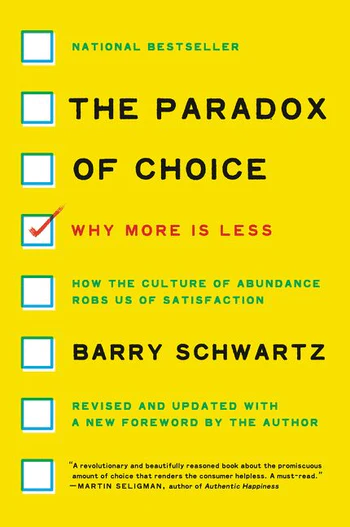PARADOX OF CHOICE, THE - Why More is Less
Availability :
In Stock
₹ 399.20
M.R.P.:₹ 499
You
Save: ₹99.80 (20.00% OFF)
(Inclusive
of all taxes)
Delivery:
₹ 0.00 Delivery charge
Author:
Schwartz, Barry
Publisher:
Ecco
ISBN-13:
9780063396128
Publishing Year:
2024
No. of Pages:
304
Language:
English
Book Binding:
Paperback











